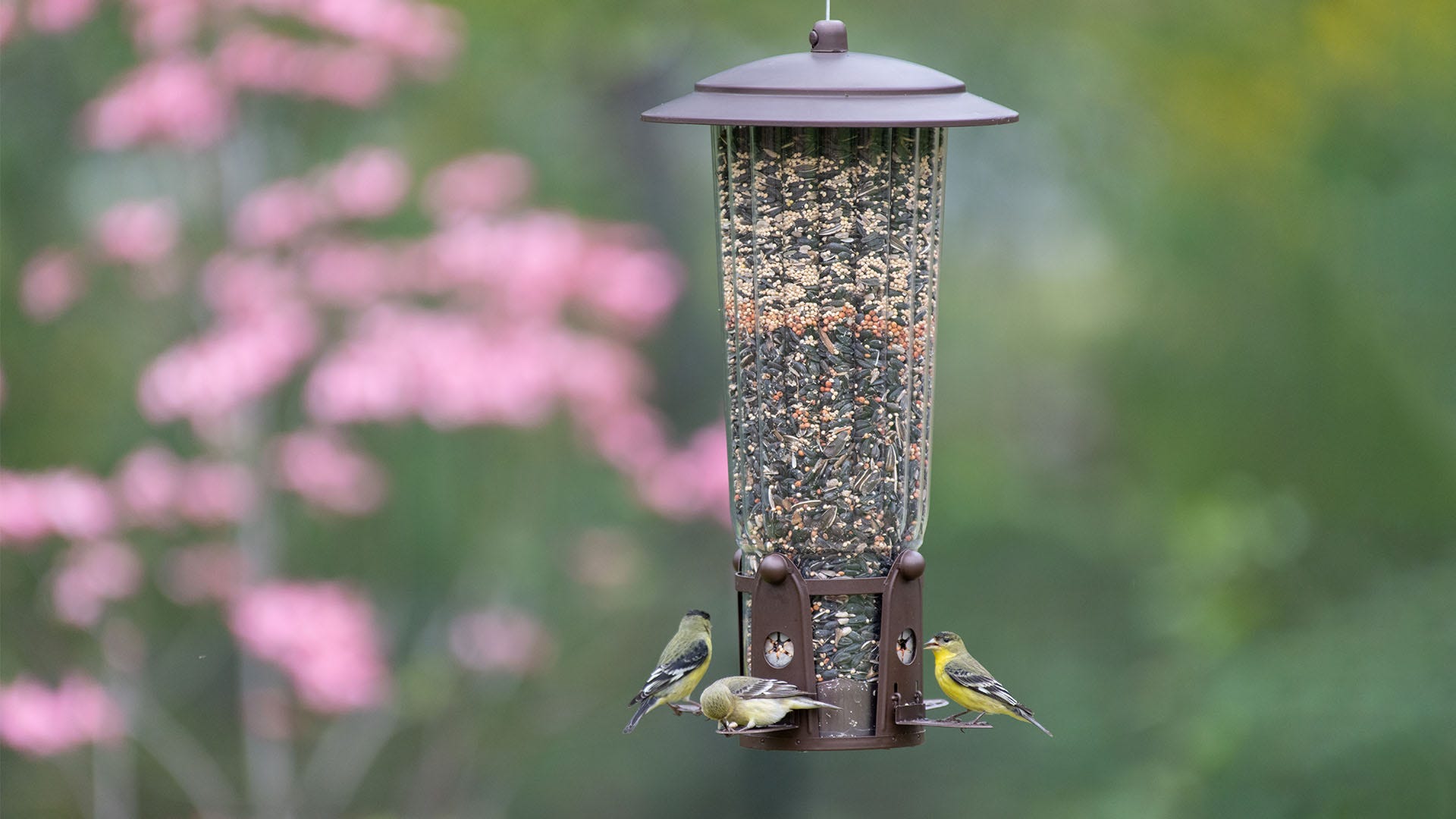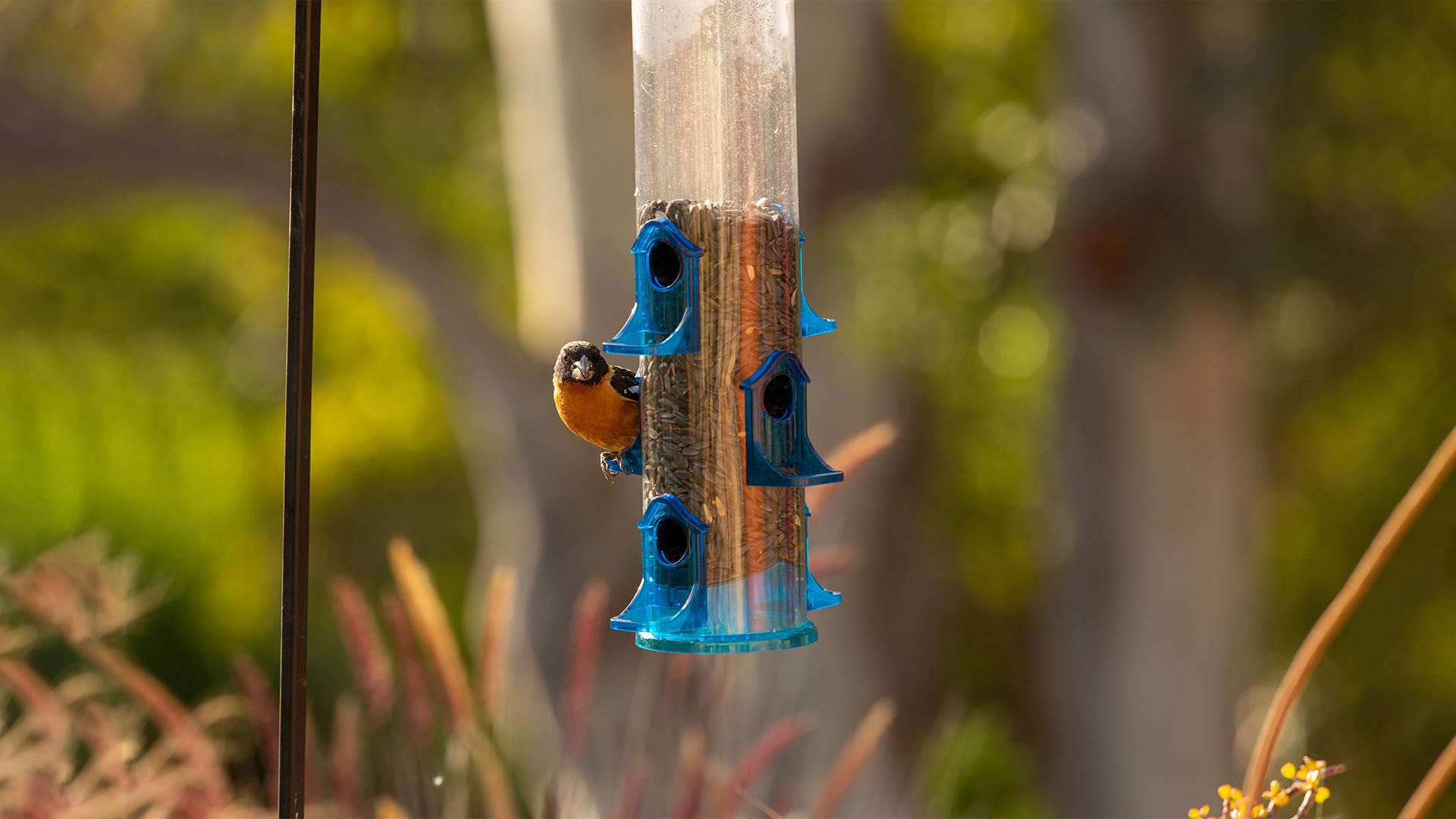So you think you’re ready to invest in the long-term health and well-being of mother nature’s beloved wild birds? The bird feeder market is saturated with product features, designs, and promotions for varying types of birds and utility purposes, so it can become overwhelming. Just remember the bird feeding basics.
Follow these five tips when shopping for bird feeders:
1. Feed long term
Don’t settle for the cheaper feeder simply for convenience, because you’ll most likely end up replacing it. Bird feeding is not just a hobby, it’s a long-term investment. Plus, your bird feeders are likely to endure freezing temperatures, sun and rain, and numerous backyard pests; such as squirrels, raccoons, and feral cats. Your best bet is spending a bit more upfront for a feeder with a product guarantee.
 2. Go BIG!
2. Go BIG!
This is where convenience is on your side. Consider the harsh winter months and constantly going outside to refill your bird feeder… it doesn’t sound ideal to us. Birds typically eat half their weight in seeds per day. Upgrade to a feeder that holds 2 lb of seed or more. With that much inventory, you can watch the continuous cycle of wild birds visiting to feed, from the warmth of your home!
3. Use common sense
Choose feeders with no sharp edges or points; the design should allow birds to perch away from the food to keep it from becoming soiled. Set up more than one feeder and allow ample space between them to avoid crowding.
4. Squirrels — PUBLIC ENEMY No. 1
Don’t let nature “run its course” when it comes to bird feeding. If you do, the squirrels will not only cut out your bird watching and feeding time, but they will likely destroy your feeders too. Opt for a squirrel-resistant feeder from the start, and be sure to avoid tray feeders that pose an open invitation for squirrels and chipmunks. Other ways to keep sneaky squirrels off of your bird feeders is by pole-mounting the feeder, adding a baffle, and choosing the right location.
5. Be ready for the mess
Simply put, birds expel where they consume, so it’s up to you to clean and sanitize your feeders on a regular schedule. When searching for your next feeder, remember plastic, steel, or glass feeders are easier to keep germ-free than wood or clay, which are absorbent and difficult to sanitize.
Bird feeding is just like any other investment. It takes research and commitment to care for another life. Overall, your bird feeders should be easily filled, emptied, and cleaned.
Just remember the bird feeding basics when shopping for your next bird feeder!








